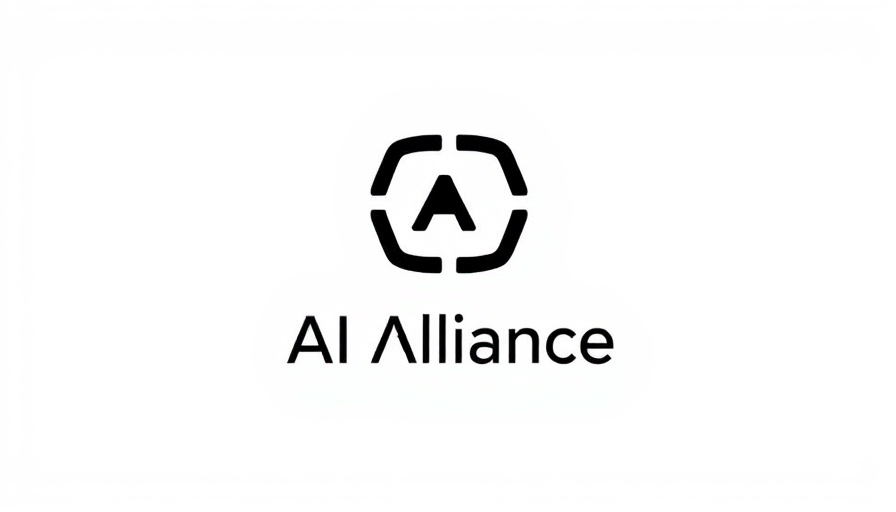
The Rise of AI in Japan: A New Era of Innovation
In a significant stride towards enhancing technological capabilities, the AI Alliance has officially launched two groundbreaking initiatives: Dana, the first AI-powered programming language, and OpenDXA, a new framework dedicated to industrial AI. This news signals not just innovation but a pivotal moment for Japan as it aims to reinforce its position in the global AI landscape.
A Closer Look at Dana and OpenDXA
Dana stands out from conventional programming languages by allowing users to articulate their objectives without getting bogged down in intricate coding processes. According to Christopher Nguyen, CEO of Aitomatic, this represents an evolutionary leap from AI-assisted coding to an AI-native programming experience. By understanding users' intents, Dana automatically manages the implementation process, dramatically simplifying software development for professionals and amateurs alike.
Complementing Dana is OpenDXA, an open-source agent framework tailored for industrial applications. This framework is designed to handle complex domain data and workflows, ensuring that industrial AI systems can operate alongside engineers and domain experts effectively. The focus on open, explainable AI approaches sets these projects apart from traditional 'black box' systems, adding transparency to the AI development process.
AI Alliance Japan: Building a Local Ecosystem for Global Impact
The unveiling of AI Alliance Japan marks a crucial step in localizing AI development to cater to Japan's unique cultural and economic contexts. This new working group aims to propel open-source AI initiatives within Japan, attracting major players like Mitsubishi Electric and NEC. By leveraging resources and technical support from the global AI Alliance network, this initiative aims to enable the collaborative development of autonomous AI tools tailored to Japan's industrial sectors, including manufacturing and shipping.
One notable project supported by AI Alliance Japan is LLM-jp, an ambitious open-source study led by the National Institute of Informatics to create a sovereign language model for Japan. This initiative demonstrates a commitment to cultural sensitivity and the need for localized AI solutions.
The Implications of These Developments
As the world increasingly leans towards AI advancements, Japan's initiatives could serve as a blueprint for other nations seeking to harness AI responsibly. The implications of Dana and OpenDXA extend beyond Japan, potentially influencing how AI systems are adopted and integrated worldwide. The development of explainable AI and domain-specific agents can yield numerous benefits, including improved safety and reliability in critical industries.
Future Predictions for AI Development in Japan
The establishment of AI Alliance Japan could catalyze significant changes in the technology landscape. As domestic organizations work together to create and refine AI systems, we might expect a surge in local innovations that are culturally resonant yet technically advanced. By focusing on domains like manufacturing and shipping, Japan can not only enhance its industrial output but also position itself as a leader in responsible AI creations that prioritize safety and transparency.
Conclusion: A Call to Action
As AI continues to shape various industries, staying informed about these developments is essential. With the launch of new tools like Dana and frameworks such as OpenDXA, stakeholders in technology and industry should engage in this conversation about the future of AI. Understanding these tools not only fosters innovation but also ensures the responsible use of AI technologies in everyday transactions and operations. We encourage readers to explore more about AI developments like those from AI Alliance Japan, harnessing this knowledge to contribute meaningfully to the discussions shaping our digital futures.
 Add Row
Add Row  Add
Add 




Write A Comment